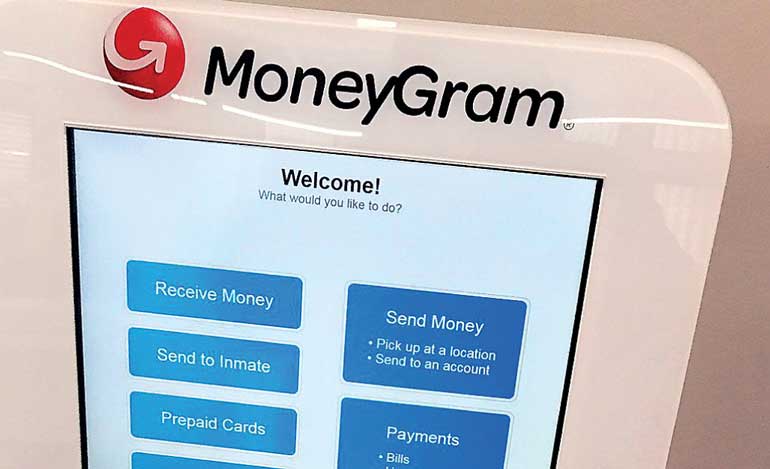Sunday Feb 22, 2026
Sunday Feb 22, 2026
Friday, 12 January 2018 00:00 - - {{hitsCtrl.values.hits}}
 BEIJING (Reuters): China’s commerce ministry said on Thursday protectionist sentiment is rising in the United States after Chinese company Ant Financial’s plan to buy US money transfer firm MoneyGram International Inc collapsed.
BEIJING (Reuters): China’s commerce ministry said on Thursday protectionist sentiment is rising in the United States after Chinese company Ant Financial’s plan to buy US money transfer firm MoneyGram International Inc collapsed.
China is disappointed that the Ant Financial-MoneyGram deal was rejected on national security grounds, ministry spokesman Gao Feng said in a regular briefing.
Ant Financial’s plan to acquire MoneyGram collapsed last week after a US government panel rejected the deal over national security concerns, the most high-profile Chinese deal to be torpedoed during US President Donald Trump’s administration.
Ant Financial is owned by Chinese internet conglomerate Alibaba Group Holding Ltd.
In another blow to the global ambitions of Chinese firms, Huawei Technologies Co’s planned deal with US carrier AT&T Inc to sell its smartphones in the United States has fallen apart at the 11th hour because of security concerns.
An editorial in the official China Daily on Thursday attributed the termination of the Huawei-AT&T deal to political pressure instead of business considerations, and said this scuppers the kind of win-win deals China has always sought.
“This is not the first time US politicians have stooped to mudslinging to prevent the entry of Chinese high-tech companies into the US market on the pretext they pose national security threats,” said the China Daily. The editorial added that the US continually criticises China for not opening its market wider and not providing a level playing field for foreign companies.
“Yet its blocking of deals involving Chinese companies in sectors where it has traditionally had an advantage shows its criticisms have more validity if directed at the US market,” the editorial said.
BEIJING (Reuters): China’s Premier Li Keqiang said the world’s second-biggest economy is expected to have grown around 6.9% last year, the official Xinhua news agency reported, accelerating from a 26-year low in 2016.
In the past year, China’s economy has maintained a steady and favourable trend, with the overall situation better than expected, Li said at the Mekong-Lancang Cooperation Forum on Wednesday.
Analysts expect the economy to have grown around 6.8% last year, beating the government’s target of about 6.5%, thanks to a construction boom and robust global demand for Chinese exports. Gross domestic product expanded 6.7% in 2016.
The main reason why China performed well last year was because it refrained from “flooding” the economy with stimulus while pushing ahead with supply-side reforms and cultivating new sources of momentum, Li said.
Massive stimulus in the past to stop growth flagging as the global economy faced strong headwinds had led to massive borrowing by state-run firms and local governments.
Total debt in the second quarter of last year amounted to 255.9% of GDP, according to Bank for International Settlements estimates. Policymakers have been relentless in their efforts to defuse financial risks amid a mountain of debt as China makes its gradual transition from a command to a market economy. The country’s corporate leverage ratio declined at a steady pace last year, Li said, according to Xinhua.
China’s foreign exchange reserves also continued to rise last year, the premier said. The country’s foreign exchange reserves rose to their highest in more than a year in December, blowing past economists’ estimates, as tight regulations and a strong yuan continued to discourage capital outflows.
The official 2017 GDP data is due to be published on Jan. 18.
Policy sources told Reuters previously that China will still keep its GDP growth target at around 6.5% in 2018 as Beijing seeks to balance efforts to reduce debt risks while keeping the economy on a steady footing.